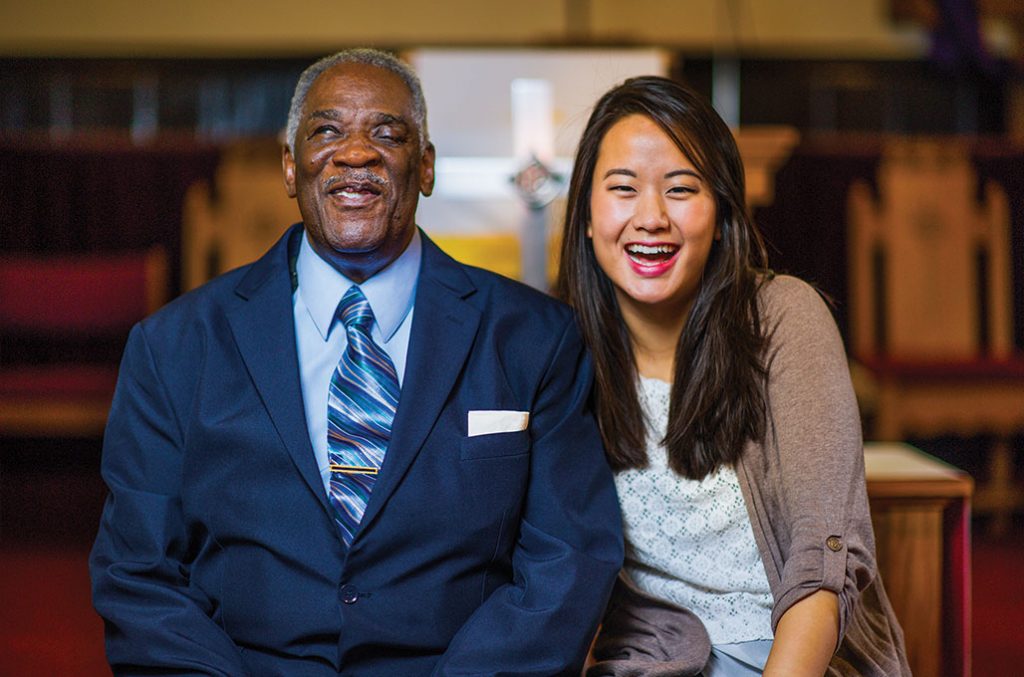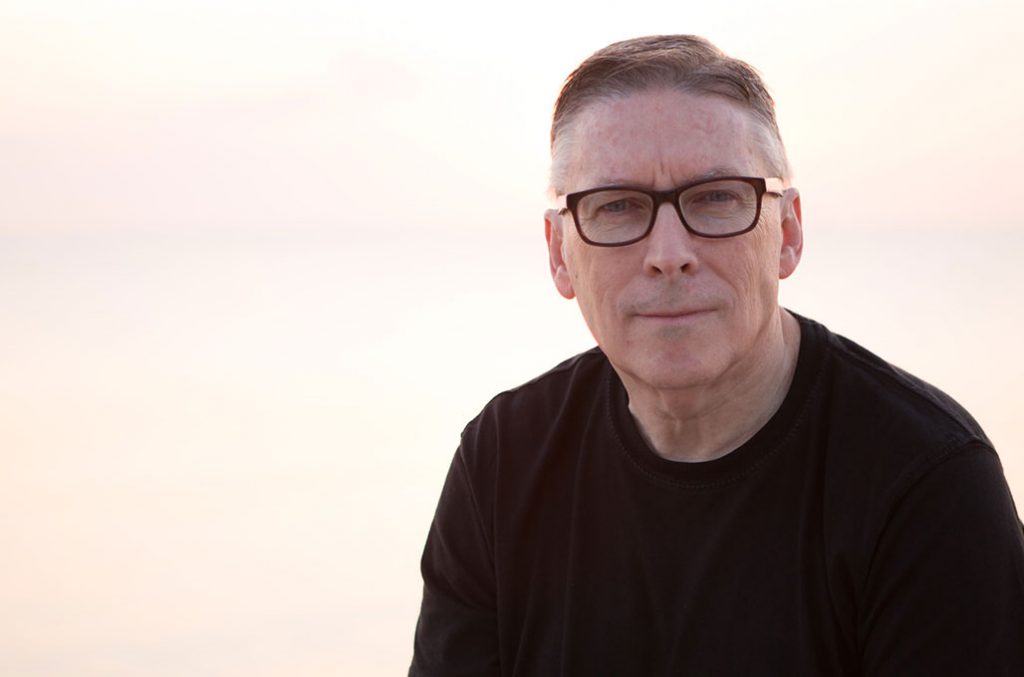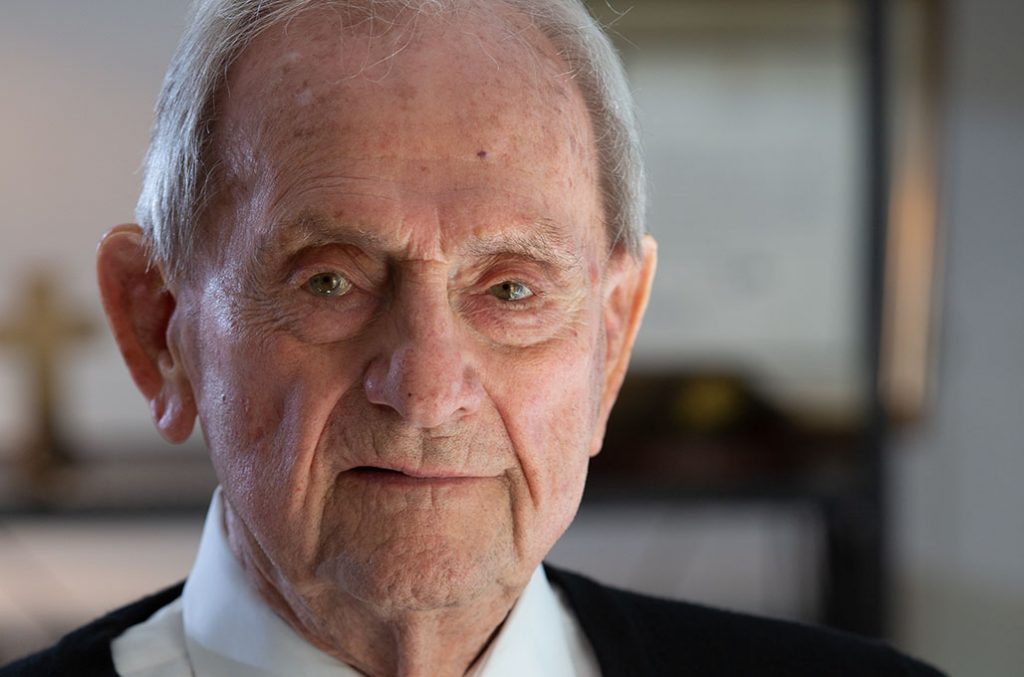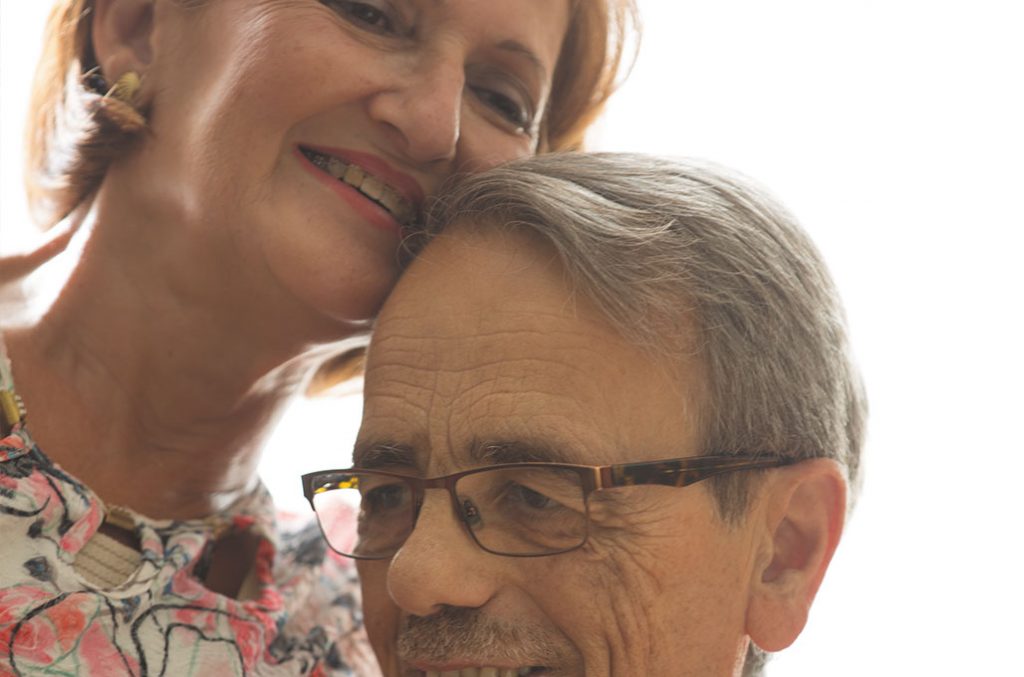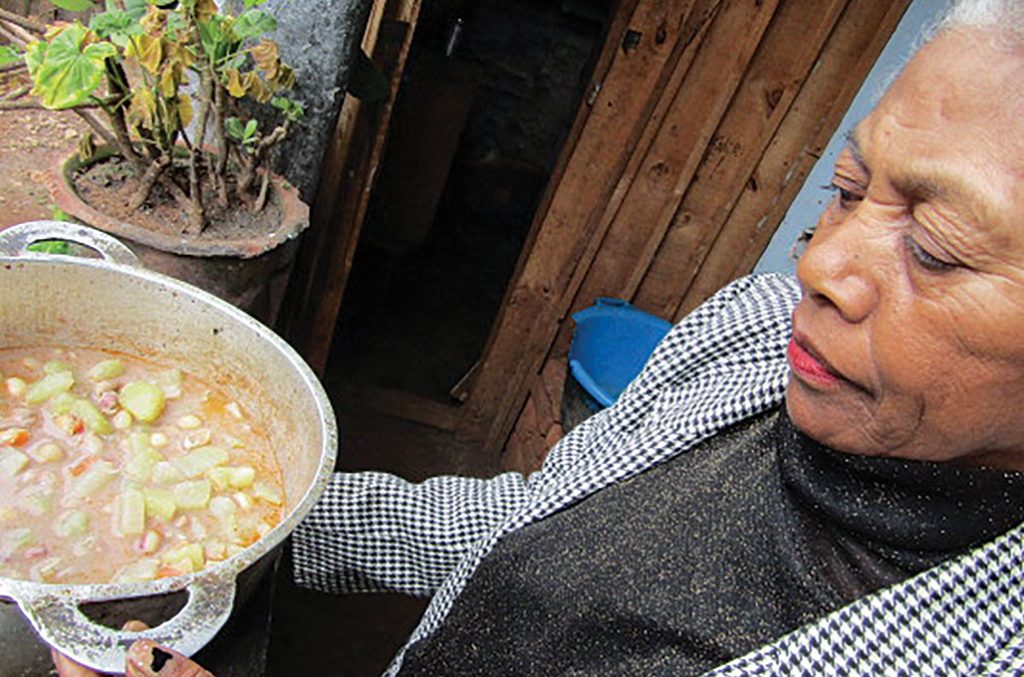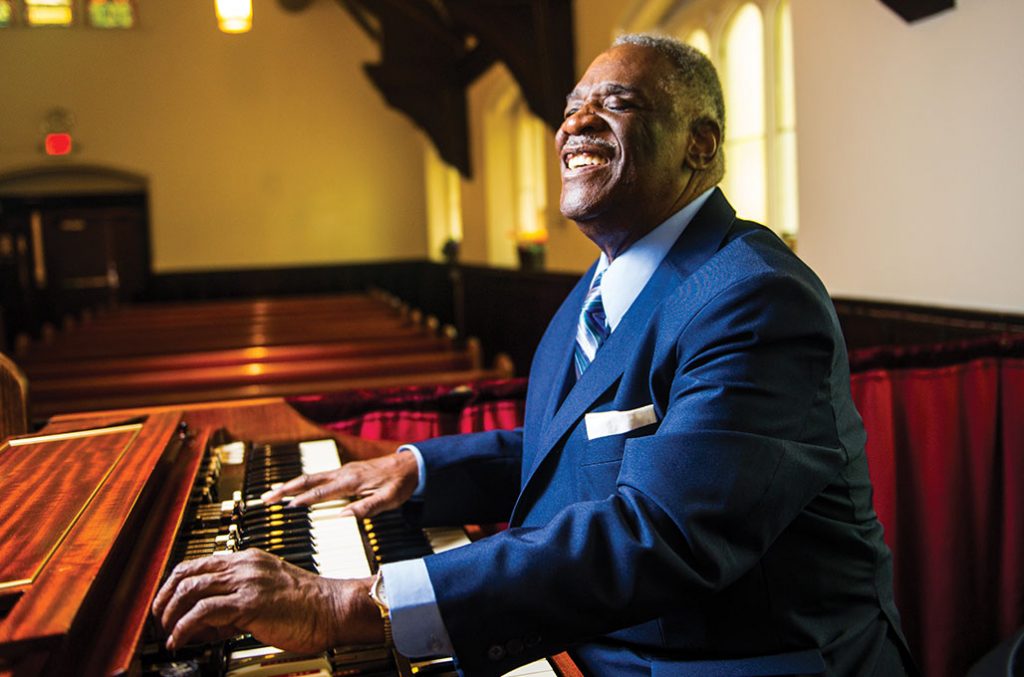Desmond O’Grady is a Jesuit priest who served in many prominent positions throughout Ireland. He was recently diagnosed with Alzheimer’s. He shares what living with the disease has taught him and how it has changed the way he lives life. In this audio clip, he discusses understanding and accepting his limitations.
[Desmond O’Grady, SJ] Oh yeah, I mean the anxiety at the early stages was high. Not being able to remember, yeah, not being able to remember that either in detail, but I know that there was a time of considerable confusion when I’d be saying, ‘I know how to get places!’ Like finding directions. I’m a Dubliner, born and bred, lived here all my life. I love walking around the city. Now I can’t. Someone says to me, ‘How do I get to Mespil Road?’ and I say, ‘Oh Mespil Road, oh yeah.’ And I would find I couldn’t do it. I know I know, but I can’t articulate it. And that upsets me, and sometimes then I feel that I don’t want to admit it. So that upsets me even more. But I’m getting used to that.
[Interview] And how do you deal with those kind of frustrations, because they are significant?
[Desmond O’Grady, SJ] I deal with them first of all by admitting them, and saying, ‘Well wait now. You’ve lost that out.’ But I also deal with them then in terms of when I’ve found that I’ve lost something I get out my maps, and I have a look at them again, and I refresh my memory. Like the map of Dublin, Dublin City, see, I couldn’t place Waterloo Road the other day. Now where is it? And then I’ll get it and say, ‘Okay, I’ll try to remember that.’ So I’m just too practical minded. Like someone said to me, Des, you don’t do drama, do you? [laughter]
[Interviewer] And do you think that’s important that you don’t do drama, that you keep things in perspective for yourself with awareness?
[Desmond O’Grady, SJ] Well, for me it has proved very important, you know? I find it’s a terrible nuisance. Everything takes twice or four times as long to do as it used to do because I go on wrong tracks and I have to retrace and I have to start again and I have to check up what I’ve done and all of that kind of stuff. But now I just take it that, okay, that’s where I am. Is the job worth doing? I want to get the job done. Is it done okay? ‘Tis. Okay. So, it takes twice as long. That’s the way it is. And I suppose I was always a bit realistic. You see, even as a child I had to come to grips with my own limitations. At that stage it was asthma. Like, kids in the city, I grew up during the war, so there were no cars or anything like that, so we played in the street. We’d get tired playing in the street, and we’d go to the next street. And then we’d go up to Palmerston Park. I grew up in Rendella. I had to come to realize that by the time I got to Palmerston Park, everyone else was on their way back home because I couldn’t run with the asthma. So I had to say, ‘Oh, gee. I can’t do that. How do I make a life for myself in it?’ I can walk forever, so I took up walking. Getting the 48A bus out to Ballantier, going up onto Tree Rock and all the mountains there. [Gasp] They took the breath out of me. They really did. And then, you know, just, why the 48A? Take the 44. It will bring you out to Enniskerry. Why stop there? Get the Glendilock bus and the world’s your oyster.
MORE STORIES

